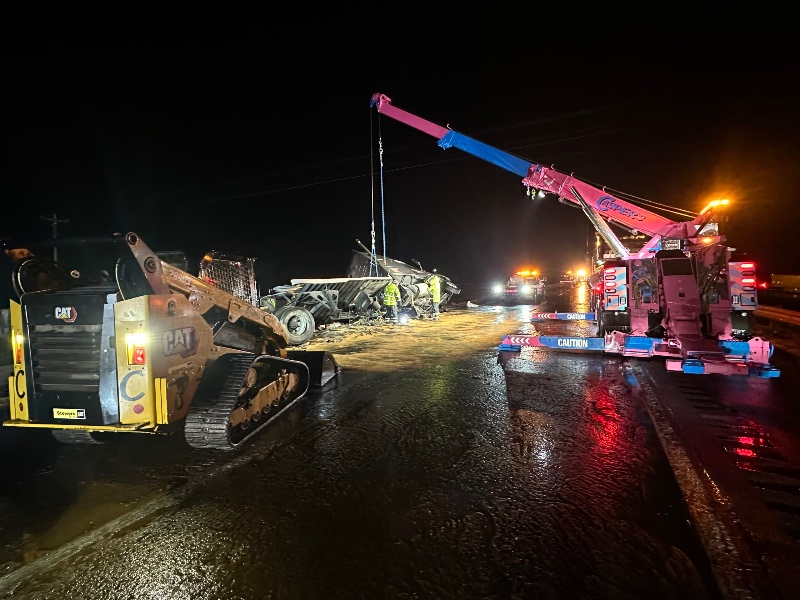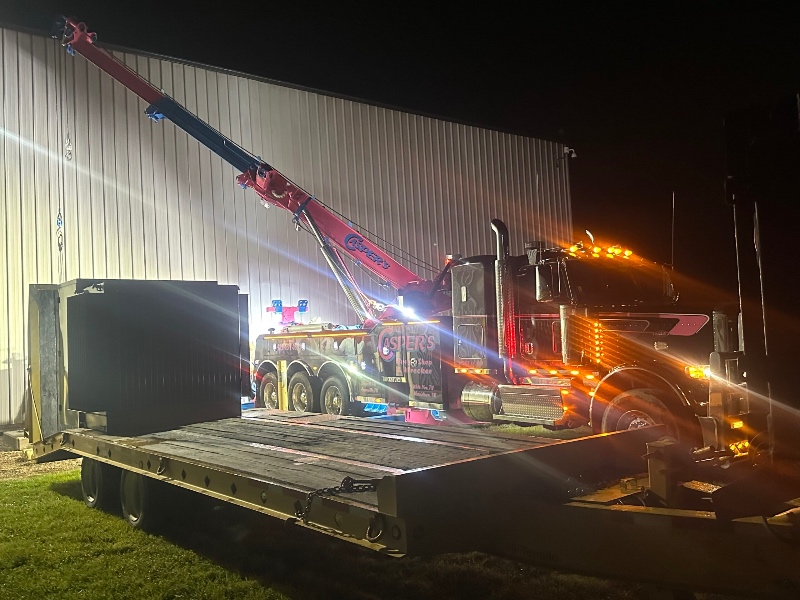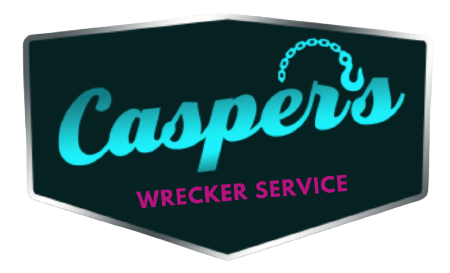Lights, Chains, Action
When we get a towing call in the middle of the night, we know it’s never for something small. Heavy-duty recoveries after dark are a different beast altogether. The roads are quieter, sure, but the risks multiply. Visibility drops, temperatures fall, and navigating narrow Tennessee highways with massive wreckers becomes a careful dance of caution and skill. At Casper’s Wrecker Service, we’ve spent years responding to night calls for Chuckey heavy recovery, and we’ve learned that working in the dark takes more than just good headlights.

The Dark Adds Layers of Risk and Responsibility
Night recovery jobs are full of unknowns. One moment we’re responding to a jackknifed semi on a curve; the next, we’re coordinating with law enforcement to safely redirect traffic while we clear debris. Low visibility affects everything from setting up winches to spotting spilled fluids on the pavement. Even familiar roads look different in the dark.
We rely heavily on lighting—both on our trucks and portable floodlights—to create a safe workspace. Communication becomes critical, and every member of our crew has to be locked in. Everyone knows exactly what they’re doing and where they need to be. There’s no room for error when you’re pulling 80,000 pounds out of a ditch at 3 a.m.
Fatigue is another challenge. The human body isn’t wired to do heavy lifting in the early morning hours, but the job doesn’t wait until sunrise. We rotate shifts and keep our team fresh, because alert minds and sharp reflexes save lives.
What Makes Night Recovery So Different
We don’t treat night recoveries like daytime jobs with less sunlight; they’re an entirely different category. Here’s why:
- Shadows hide hazards like downed power lines, leaking fuel, or broken axles.
- Reduced driver visibility increases the risk of secondary collisions.
- Cold weather at night can turn road surfaces into sheets of black ice.
- Limited access to nearby resources and repair shops complicates logistics.
Every time we roll out in the dark, we bring not just equipment but strategy. We double-check everything and maintain constant contact with dispatch. Safety always comes first, for us and the drivers we help.
How We Make It Work
Success during night recoveries comes down to preparation and experience. Here’s how we stay on top of it:
- Lighting: We deploy high-output LED floodlights to illuminate the entire worksite.
- Safety Gear: Our crew wears reflective gear and hard hats equipped with personal lights.
- Communication: Two-way radios keep everyone updated every second.
- Staging and Setup: We arrive early, block off the scene, and assess before we touch a single chain.
- Contingency Planning: We plan for alternate routes, backup gear, and emergencies before we start the job.
By sticking to strict protocols and staying flexible, we’re able to adapt to whatever the night throws at us.

Casper’s Wrecker Service: Your Go-To for Chuckey Heavy Recovery
Night or day, rain or shine, Casper’s Wrecker Service handles Chuckey heavy recovery with a steady hand. Our team knows these roads and understands the stakes. We’ve helped countless drivers with Chuckey heavy recovery in the dead of night, bringing the muscle and know-how to get the job done right.
When the unexpected happens after hours, you don’t have time to guess who to call. With Casper’s, Chuckey heavy recovery doesn’t mean waiting until morning—it means help is already on the way. We show up fast, work smart, and don’t leave until everything’s cleared and safe.
So if you ever find yourself in need of Chuckey heavy recovery during the late hours, know that we’re ready. From overturned rigs to off-road recoveries in pitch black, we’ve handled it all. And we’ll keep doing it, one night at a time, for every Chuckey heavy recovery that comes our way.
